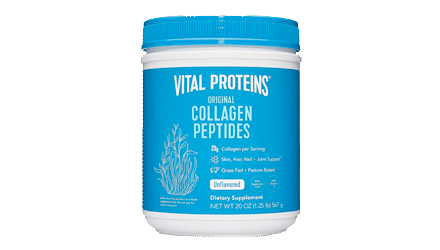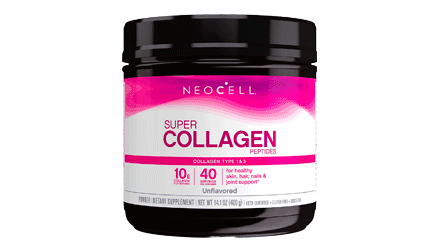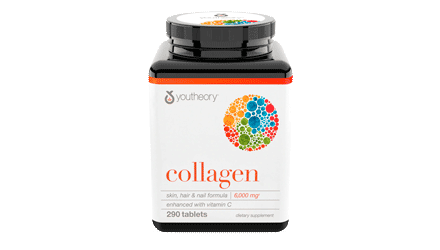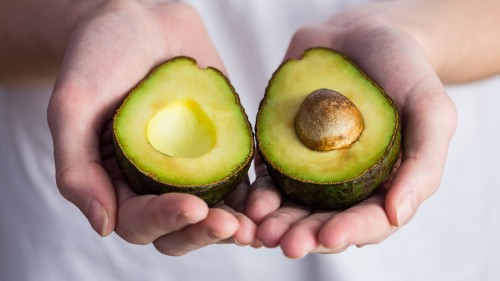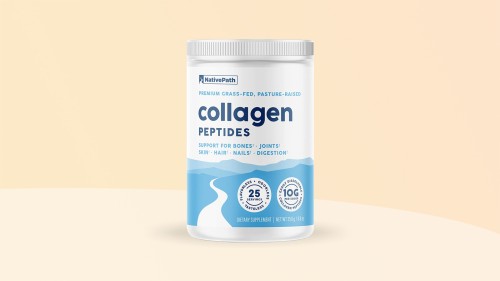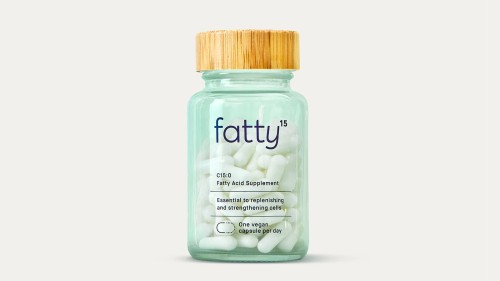The Importance of Collagen, Why It Declines, and Ways to Maintain It
Last Updated on June 1, 2023
Medically Reviewed by Anthony Dugarte, MD
Collagen is an abundant protein in our bodies that has many vital roles. However, its levels and quality decline with age and other environmental factors. Here’s what you need to know to maintain your levels.


Key Highlights
- Collagen is an abundant protein in our bodies responsible for the structure and strength of bones, muscles, skin, joints, and other connective tissues.
- As we age, the natural production and quality of collagen decline. Certain environmental factors contribute as well.
- Consuming certain essential nutrients and adequate amounts of protein-rich foods containing amino acids may help with collagen production.
- In addition, avoiding processed food, sun exposure, and not smoking are ways to help keep your collagen structure strong.
- Eating a well-balanced diet and reducing lifestyle risk factors is the best way to support your collagen production. However, research shows supplementation may be a good addition, particularly for joint and skin health.
What Is Collagen?
Collagen is the most abundant protein in our bodies. It is found in bones, muscles, skin, ligaments, tendons, cartilage, and joints in humans and animals (but not plants). Its role is to provide these tissues with structure, strength, and ability to withstand wear and tear.
All protein molecules are created in a unique pattern and ratio of amino acids. Collagen is primarily made from the amino acids glycine (making up about 33%), proline, and hydroxyproline. Collagen is made by cells called fibroblasts that live within collagen tissues.
There are about 28 different types of collagen proteins that have been identified. (1) The proteins are similar in structure but are mixed with different substances to make other tissues.
By far, the three most abundant types of collagen in the human body are:
- Type I: Structure in bone, skin, tendons, ligaments
- Type II: Structure of cartilage, providing cushioning between bones, frame of the nose, and ears
- Type III: Structure in muscles, vessel walls, muscles, lung fibers, liver, and other organs
What Happens to Collagen as We Age?
Collagen is plentiful in young bodies and is a major part of what keeps us looking and feeling youthful. (2)
As we age, we make less collagen, and existing collagen breaks down at a faster rate. In addition, the quality of collagen is lower than when we were young. Collagen levels can begin to decline in our mid to late 20s. (3)
Lifestyle factors can also play heavy roles in collagen damage and can slow collagen regeneration.
- Damaging ultraviolet light from the sun both degrades the collagen matrix and decreases the skin’s ability to make more collagen. (4) To avoid this, it’s best to use sun protection like clothing and sunscreens.
- Smoking can also contribute to decreased collagen production. Smoking causes free radicals to get in the way of collagen synthesis. (5)
- Excessive alcohol use can deplete vitamins and decrease the body’s ability to make new fibroblasts (the cells which make new collagen).
- Elevated blood sugar levels decrease the body’s ability to repair collagen. Avoiding processed sugar can help maintain collagen in the skin, blood vessels, kidneys, eyes, and muscles. (6)
No test can measure your collagen levels. However, some ways to tell that you don’t have enough collagen are wrinkled and sagging skin, stiff joints, joint pain, and muscle aches.
The Role of Diet in Collagen Production
No research shows that eating foods high in collagen directly increases our body’s collagen levels. That’s because collagen can’t be absorbed in its whole form. Instead, our bodies break down the proteins we consume into the amino acids needed to support collagen production throughout the body.
Foods Containing Collagen
Collagen is found in parts of certain animals, including skin, bones, and cartilage. Some food sources that contain collagen are:
- Tougher cuts of red meat, like pot roast or brisket (which must be cooked for a long time to break down the collagen).
- Bone broths, or the liquid from simmering bones for 12–24 hours.
- Fish with bones and skins, including canned salmon and sardines.
Protein-Rich Foods Needed to Make Collagen
Eating certain protein-rich foods is the best way to provide your body with the amino acids (glycine, proline, and hydroxyproline) needed to make collagen. These foods include:
- Eggs
- Dairy
- Fish
- Poultry
- Beef
The amino acids can also be found in many vegan sources. These foods include soybeans, black beans, kidney beans and other legumes, pumpkin seeds, sunflower seeds, chia seeds, pistachios, peanuts, cashews, cabbage, asparagus, mushrooms, and seaweed.
Did You Know? The oldest and most familiar way people supplement collagen is with gelatin, which is sold in grocery store baking isles as a food ingredient and is generally regarded as safe (GRAS) by the Food and Drug Administration.
Essential Nutrients Needed for Collagen Formation
Finally, essential nutrients such as vitamin C, zinc, and copper are also important for collagen formation:
- Vitamin C: The importance of vitamin C during collagen formation is well known. Excellent sources of vitamin C include bell peppers, broccoli, strawberries, pineapple, and oranges.
- Zinc: Its deficiency is known to decrease the body’s ability to make new collagen and break down old cells. (7) Great sources of zinc include pumpkin seeds, lentils, garbanzo beans, cashews, poultry, and beef.
- Copper: Copper is needed to reinforce the structure of newly formed collagen fibers. (8) Foods high in copper include cashews, sesame seeds, soybeans, shitake mushrooms, garbanzo beans, lentils, and walnuts.
Eating a well-balanced diet containing protein-rich foods and plenty of fruits and vegetables is the best way to support natural collagen production.
Can Collagen Supplements Help?
There is a body of growing evidence supporting the benefits of collagen supplementation, but keep in mind that there are still many unknowns regarding how effective it is and what the correct doses are for individuals.
Collagen supplement brands typically provide hydrolyzed collagen powder, also known as collagen peptides or collagen hydrolysate, because it’s easier for your body to digest and absorb. It’s simply collagen that has been chemically broken down from its gelatin form. This makes the product easier to dissolve in both hot and cold liquids. It is also tasteless and can be mixed into foods and drinks. (9)
Research shows collagen supplementation may help in the following ways:
- Joint Discomfort: Studies have shown that people, including youth, healthy athletes, and elders experienced significant improvement in joint pain reduction and joint function after taking collagen peptides. (10, 11)
- Osteoporosis and Osteoarthritis: Studies have shown that collagen supplementation helped alleviate symptoms associated with Osteoporosis and Osteoarthritis. (12, 13)
- Skin Appearance and Strength: Studies show that collagen helps improve wound healing, dermal collagen density, skin elasticity, hydration, and decrease wrinkles. (14, 15)
- Fingernail Strength: Studies showed that collagen supplementation helped improve nail growth, decrease nail brittle, and decrease how often nails are broken. (16)
- Age-Related Loss of Skeletal Muscle Mass and Strength (Sarcopenia): A study showed that people experiencing age-related muscle loss (or sarcopenia) experience more muscle gain. (17)
- Cardiovascular Health: A study involving 31 adults showed that taking 16 grams of collagen daily for six months improved artery stiffness and increased “good” or HDL cholesterol. (18)
Tip: Learn more about the benefits and research of taking collagen supplements here.
Are There Any Safety Concerns with Collagen Supplements?
Overall, collagen supplementation is considered generally safe. Specifically, a review in 2019 of eight studies involving 680 people showed no adverse effects of collagen during the studies. The length of the studies varied from 56 to 180 days. (14)
While collagen supplementation is safe, it’s important to remember that brands may include other ingredients in their formulations. So you’ll need to carefully evaluate the other ingredients and how they may affect you.
Because collagen is often extracted from fish or animal sources, supplementation may not be best suited for those with specific allergies or following a vegan diet.
If you have any conditions, are taking medications, are pregnant, or are breastfeeding, speak to your doctor to ensure collagen supplementation is the right choice.
Important Note: Because supplements are not regulated by any government health organization, it’s always best to choose those that have been third-party tested by a private company for purity and quality. Look for a seal from USP, NSF, or Consumer Labs.
Collagen Supplement Brands to Consider
If you decide to add a collagen supplement to your daily routine, we selected some brands below for you to consider because they contain third-party testing, proper dosing of the ingredients (with research showing that they are safe and effective), and are reasonably priced.
At WellnessVerge, we only use reputable sources, including peer-reviewed medical journals and well-respected academic institutions.
- Collagen: The Fibrous Proteins of the Matrix:
https://www.ncbi.nlm.nih.gov/books/NBK21582/ - Oxidative Stress in Aging Human Skin:
https://www.ncbi.nlm.nih.gov/pmc/articles/PMC4496685/ - Collagen | The Nutrition Source | Harvard T.H. Chan School of Public Health:
https://www.hsph.harvard.edu/nutritionsource/collagen/ - Decreased Collagen Production in Chronologically Aged Skin:
https://www.ncbi.nlm.nih.gov/pmc/articles/PMC1606623/ - Impact of Smoking and Alcohol Use on Facial Aging in Women: Results of a Large Multinational, Multiracial, Cross-sectional Survey:
https://www.ncbi.nlm.nih.gov/pmc/articles/PMC6715121/ - The role of collagen crosslinks in ageing and diabetes - the good, the bad, and the ugly:
https://www.ncbi.nlm.nih.gov/pmc/articles/PMC4241420/ - Zinc may increase bone formation through stimulating cell proliferation, alkaline phosphatase activity and collagen synthesis in osteoblastic MC3T3-E1 cells:
https://www.ncbi.nlm.nih.gov/pmc/articles/PMC2981717/ - Copper and the synthesis of elastin and collagen:
https://pubmed.ncbi.nlm.nih.gov/6110524/ - Hydrolyzed Collagen—Sources and Applications:
https://www.ncbi.nlm.nih.gov/pmc/articles/PMC6891674/ - 24-Week study on the use of collagen hydrolysate as a dietary supplement in athletes with activity-related joint pain:
https://pubmed.ncbi.nlm.nih.gov/18416885/ - The effects of collagen peptide supplementation on body composition, collagen synthesis, and recovery from joint injury and exercise: a systematic review - PubMed:
https://pubmed.ncbi.nlm.nih.gov/34491424/ - Collagen supplementation as a complementary therapy for the prevention and treatment of osteoporosis and osteoarthritis: a systematic review:
https://www.scielo.br/j/rbgg/a/fk95TfhxB7mPsmqYRDdHH8K/?format=pdf&lang=en - Effect of collagen supplementation on osteoarthritis symptoms: a meta-analysis of randomized placebo-controlled trials - PubMed:
https://pubmed.ncbi.nlm.nih.gov/30368550/ - Oral Collagen Supplementation: A Systematic Review of Dermatological Applications:
https://pubmed.ncbi.nlm.nih.gov/30681787/ - Collagen supplementation in skin and orthopedic diseases: A review of the literature - PMC:
https://www.ncbi.nlm.nih.gov/pmc/articles/PMC10102402 - Oral supplementation with specific bioactive collagen peptides improves nail growth and reduces symptoms of brittle nails:
https://pubmed.ncbi.nlm.nih.gov/28786550/ - Collagen peptide supplementation in combination with resistance training improves body composition and increases muscle strength in elderly sarcopenic men: a randomised controlled trial - PMC:
https://www.ncbi.nlm.nih.gov/pmc/articles/PMC4594048/ - Effect of Collagen Tripeptide on Atherosclerosis in Healthy Humans:
https://www.ncbi.nlm.nih.gov/pmc/articles/PMC5429168/

